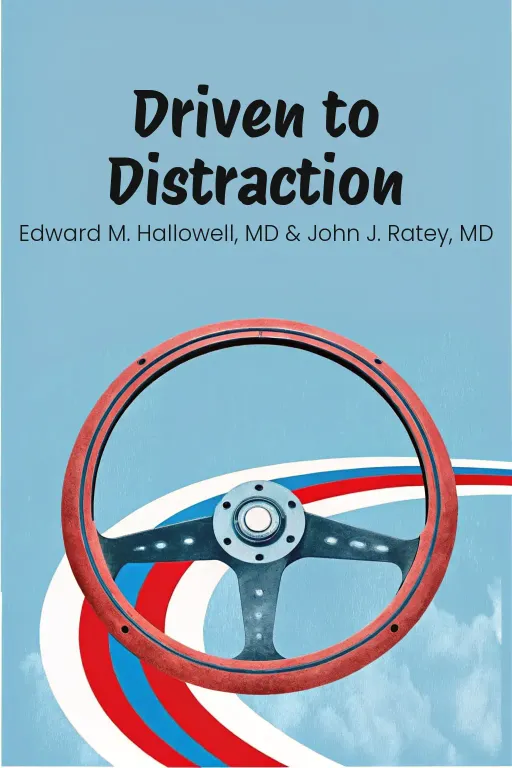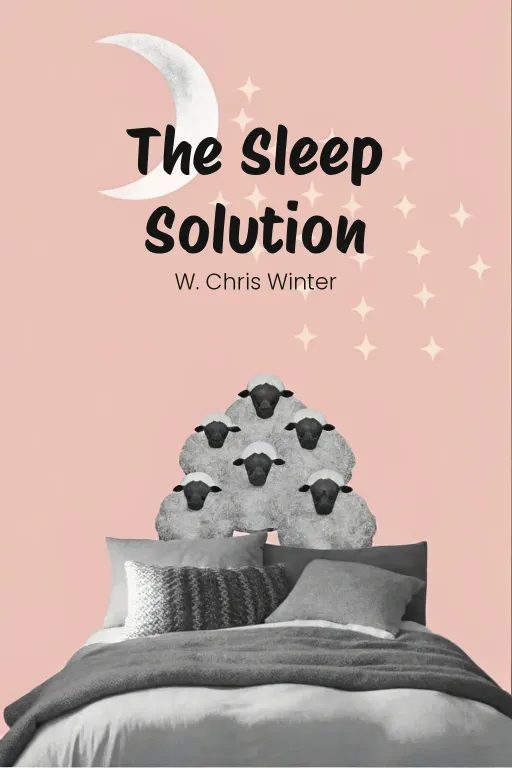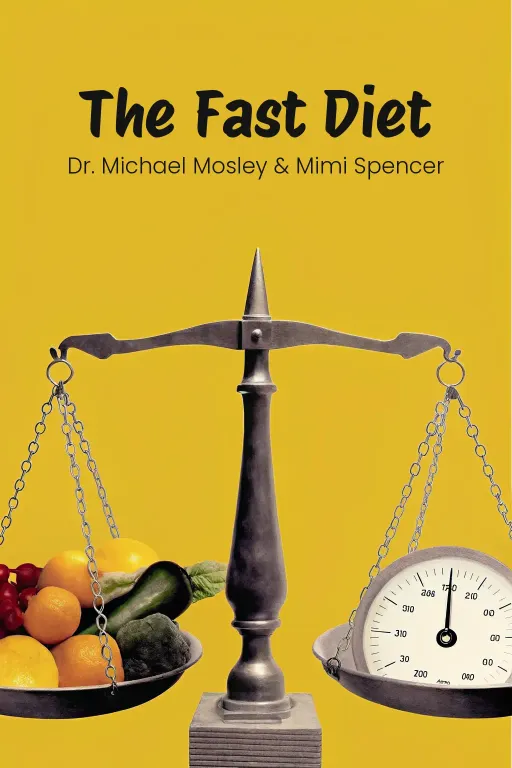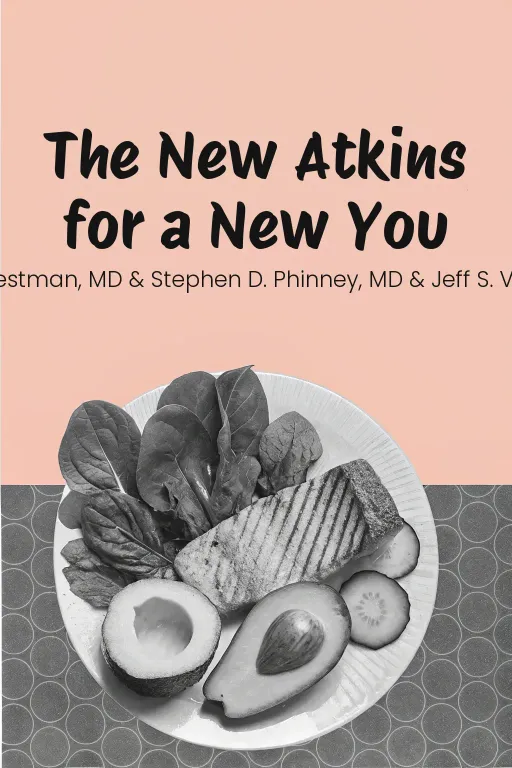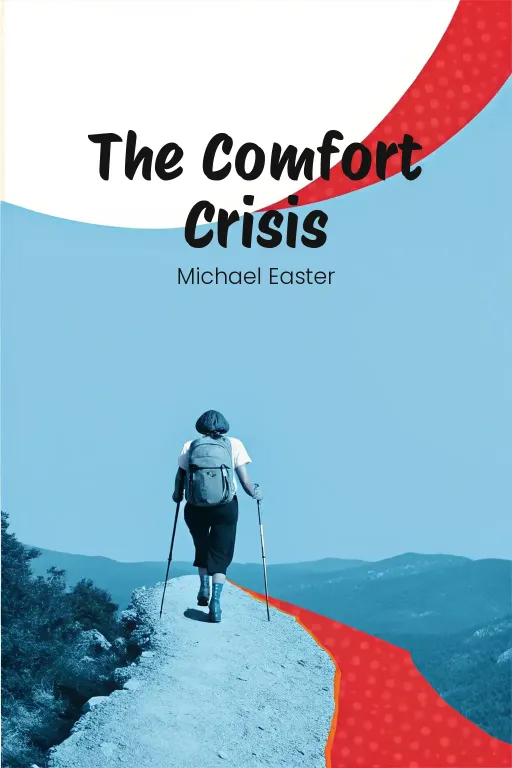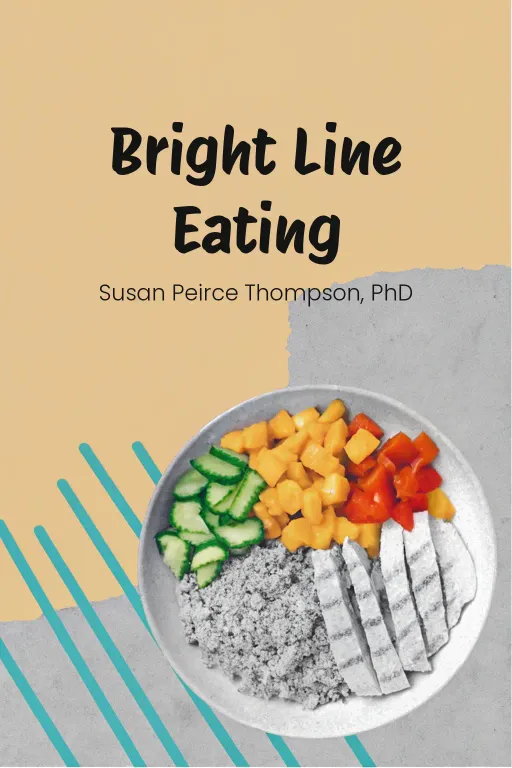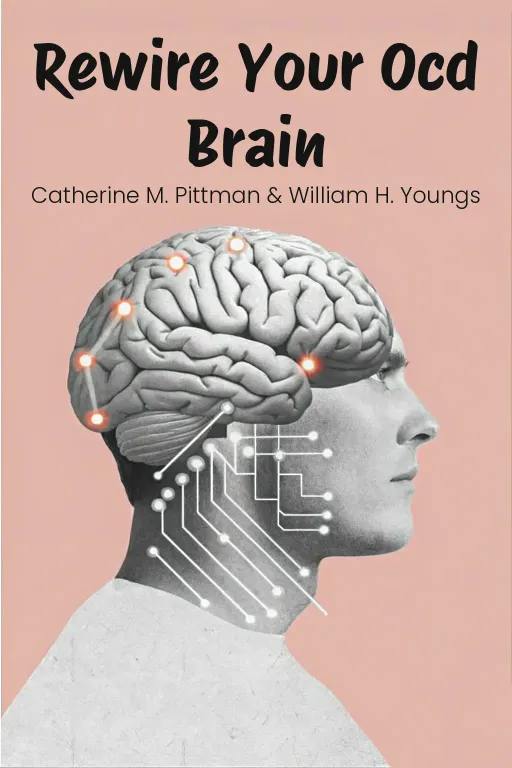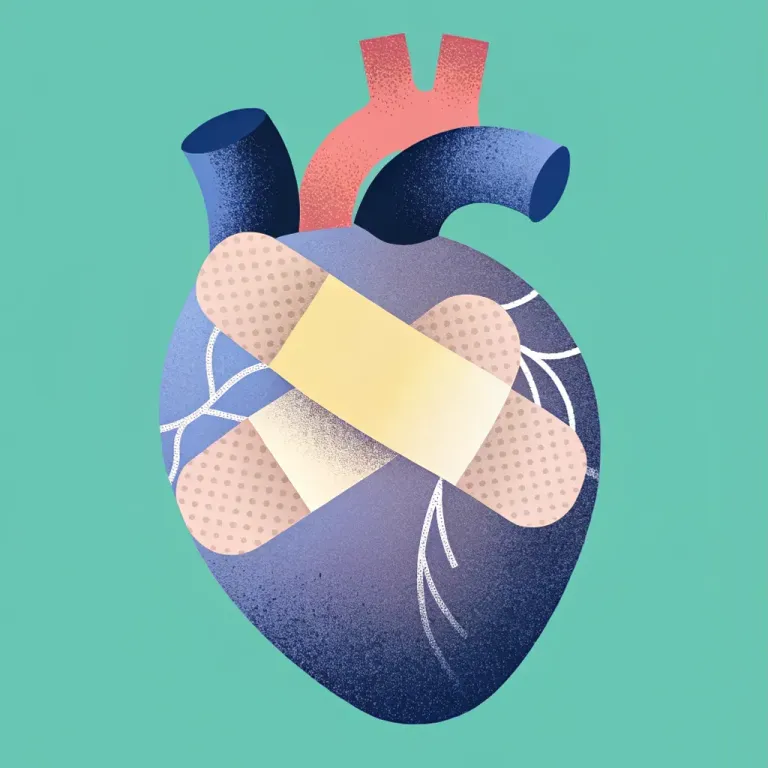
Body's Breaking Down? Unpack Your Baggage!
Podcast by Beta You with Alex and Michelle
The Cost of Hidden Stress
Body's Breaking Down? Unpack Your Baggage!
Part 1
Alex: Hey everyone, welcome back! Today we’re tackling Dr. Gabor Maté’s “When the Body Says No”, a book that might just change how you see health. Let me ask you this, have you ever been so stressed or emotionally overwhelmed that your body just… reacted? Michelle: Ugh, you mean like those headaches I swear are from caffeine withdrawal, but deep down I know are from the pressure I put on myself at work? Alex, are we finally pinning everything on stress today? Alex: Well, not everything, but Dr. Maté digs deep into the connection between emotional stress and chronic illnesses. Things like cancer, autoimmune diseases… He argues that unresolved trauma and suppressed emotions don't just mess with our heads, they manifest physically. Michelle: Brilliant. So, not only do I need to choke down kale smoothies, now I have to unpack my childhood baggage too? What a time to be alive and healthy, right? Alex: Basically! Maté "really" challenges that old-school idea of separating the mind and body. He pushes for a more holistic, interconnected approach to health. Michelle: Alright, so what exactly are we breaking down from this book today? Alex: We're hitting three main things. First, the scientific evidence of how stress and emotions can literally change our biology. Then, we’ll look at some compelling real-life cases—people whose illnesses were deeply linked to unexpressed emotions. And finally, we’ll explore emotional healing as a vital tool for overall wellness, almost like a secret key to better health. Michelle: Science, real-life stories, and a glimmer of hope. I guess we've got all the ingredients for a compelling podcast today.
Mind-Body Connection
Part 2
Alex: Okay, so let's dive into the science behind this mind-body connection. It's pretty amazing stuff, and honestly, it makes you realize just how connected our bodies and emotions really are. You know, psychosomatic medicine really challenges that idea that we can just treat the mind and body separately. Michelle: Yeah, I mean, traditionally, you'd go to a therapist for your mental health stuff and a doctor for physical symptoms, right? It's like they were dealing with completely different systems. So, what's the actual scientific evidence that links them? Alex: Well, it starts with stress, and Maté does a great job explaining this. It's not just those big, obvious stressors like losing your job that get to you. It's also the constant, everyday stress of not getting your emotional needs met or always suppressing your feelings. Michelle: So, stress isn't just being super busy or overwhelmed. It's more like... a constant state of emotional neglect? Alex: Exactly! And this is where the physiology comes in. Constant stress fires up your hypothalamic-pituitary-adrenal axis—the HPA axis. This system controls the release of cortisol, which is our stress hormone. Cortisol can be helpful in the short term—it keeps you alert when you’re in a crisis—but with chronic stress, it's like hitting the fast-forward button on your body's aging process. Michelle: Right, so your HPA axis is like your car engine running full blast, even when you're parked. Alex: That's a great way to put it! Over time, constant cortisol release messes with everything—your immune system, inflammation, even your heart. Psychoneuroimmunology, or PNI, shows how stress weakens your immune system by disrupting lymphocytes, those white blood cells that fight off illness. Michelle: So stress basically lowers your defenses, leaving you vulnerable. Fantastic, my inbox anxiety is literally making me sick! Alex: It’s not just your inbox, though. Long-term, unresolved emotions—like fear, sadness, and especially anger—play a huge role. Maté emphasizes anger because it's like your body's built-in warning system. It's there to alert you when your boundaries are crossed. Michelle: But what happens if you just ignore that alarm? Keep hitting the snooze button? Alex: That's when things get dicey. Suppressing your anger turns that internal conflict into physical stress. Your body reacts as if it's constantly under attack. Maté uses the example of Jacqueline du Pré, the famous cellist. Michelle: Oh yeah, I remember that case. Super talented, but she developed multiple sclerosis at a young age, right? Alex: Exactly. She channeled so much emotion into her music, but in her personal life, she was always repressing things. Family expectations, emotional burdens—it all created a storm inside. She buried her dissatisfaction instead of dealing with it, and her body paid the price. Michelle: So, her music was an outlet for her emotions, but privately, she was just swallowing conflict day after day. Alex: Precisely. Another example is Véronique, who also had MS. Her adoptive mother pressured her to reconnect with her biological family, which she really didn't want to do. She avoided that conflict entirely, creating both psychological and physiological strain. Michelle: It's interesting, it's not always major catastrophes that cause stress, is it? Sometimes it's just the everyday choices to avoid confrontation or always play the peacemaker. Alex: That's what makes these stories so relevant. Jacqueline and Véronique show us how emotions, if ignored for too long, can turn into real physical problems. Suppressing anger, for example, disrupts homeostasis—our body's natural balance—which is essential for good health. Michelle: Okay, so repressed anger is the villain here. Does it have a sidekick? Like, unresolved guilt or something? Alex: That's a good point. Take Alan. Maté describes him as this high-functioning engineer who's all about "good stress." From the outside, he seems successful—great career, planned life. But he's ignoring his own unhappiness. Michelle: Let me guess: being a workaholic masked some deeper emotional issues. Alex: Exactly. Alan never dealt with his dissatisfaction in his marriage or personal life. He just numbed it with work, which he saw as a good thing, but his emotional needs were never met. Eventually, this hidden tension showed up as esophageal cancer. Maté uses his story to show that even so-called "positive stress" can be harmful. Michelle: So the high-achiever burning the candle at both ends is just as vulnerable as the couch potato who's stewing in anger. Alex: Yeah! And it brings us back to psychoneuroimmunology. Rachel, who had rheumatoid arthritis, is another good example. Her repressed anger, which stemmed from childhood trauma, made her chronic illness even worse. She was emotionally isolated from birth, which affected her ability to form relationships later in life. Michelle: And how does all that connect to stress hormones and the immune system? Alex: Well, basically the constant stress increased her cortisol levels, which messed with her immune and nervous systems. Without emotional validation or healthy outlets for her anger and fear, her body was always in overdrive. Her pain wasn't just physical, it was linked to emotional scars from decades earlier. Michelle: So, her past was living rent-free in her nervous system, demanding payment in the form of an autoimmune disorder. Alex: That’s a great way to put it, Michelle. Rachel's story highlights the long-term consequences of emotional neglect—how unresolved feelings can build up and eventually manifest as disease. Michelle: Alright, Alex, this is intense, but really interesting. It sounds like if our emotions are undermining our health, then addressing them—instead of just treating the symptoms—is the best way to prevent future problems. Alex: Precisely. Integrating emotional health into physical care turns traditional medicine on its head. Maté's book argues for a more holistic approach, where we treat stress and emotional repression as significant issues, not just minor details. Michelle: A mind-body connection, huh? I’m starting to see how biology, stress, and buried emotions are linked. What's next?
Case Studies of Emotional Repression and Illness
Part 3
Alex: This connection neatly brings us to real-life cases, you know, where emotional repression has clearly affected health. A key part of Maté's book is how he uses patient stories, organized by disease, to show how unaddressed emotions and physical illness interact. Today, we're looking at autoimmune diseases, cancer, and neurological disorders. Each case shows how emotional backgrounds significantly shape physical health. Michelle: Wow, sounds like we're diving deep into some intense personal stories. Where do we even start with this? Alex: Let's kick off with autoimmune diseases. Maté talks about rheumatoid arthritis and Crohn’s disease to illustrate how emotional repression and stress can mess up the immune system. So, the first case is Gila. Michelle: Okay. Alex: She was the oldest of eight kids in the Philippines, always taking care of her siblings. Her self-worth kind of got tangled up in that role, to the point where she always put others first. Michelle: Let me guess, she thought she was doing great until her body threw a massive “Nope,” right? Alex: Exactly. She developed rheumatoid arthritis after years of just stuffing down her feelings and ignoring her own needs. She talked about how she mistreated herself by not resting or sleeping properly because she felt she had to keep up with impossible standards due to her perfectionism. Her way of life, you know, always sacrificing herself, created the perfect conditions for her illness. Michelle: Sounds like building your whole identity on a tightrope over a canyon. One wrong move, and everything falls apart. How does Maté explain the biological connection between perfectionism and rheumatoid arthritis? Alex: Great question! Autoimmune diseases are when the immune system attacks the body's own tissues, and chronic stress plays a huge role in that. When Gila suppressed her emotional needs, she was really creating constant stress signals. Stress hormones like cortisol, when they're always there, mess with the immune system's balance. Her perfectionism was like a daily dose of invisible inflammation, slowly destroying her health. Michelle: So, her immune system basically got its wires crossed and started attacking her joints? Some awful form of self-sabotage. Alex: Exactly! Another really touching case Maté mentions is about Martha, who was diagnosed with Crohn's disease during a really tough time in her life. Her marriage was falling apart—her husband was cheating and emotionally distant—but she wouldn't let herself feel or show her pain. Instead, all that stress showed up physically. Michelle: Was this one of those cases where doctors only treated the physical symptoms, completely missing the emotional factors? Alex: Absolutely. Martha had severe bleeding and hospitalizations, but no one thought about the emotional impact of her marital stress until she started making the connection herself. She finally realized the toxic situation at home was making her illness worse. Once she started dealing with her emotions, you know, leaving her marriage and focusing on healing, her health got a lot better. Michelle: That's such a common theme, isn't it? People quietly suffering in toxic situations, thinking, "If I just keep going, it'll get better." But their bodies are screaming, "No more!" Alex: Precisely! Gila and Martha's stories show us that emotional repression isn't just in our heads. It's biological, affecting our immune system. And the lack of awareness, both in people and in our healthcare systems, allows these patterns to continue. Michelle: Okay, autoimmune diseases are a big deal in this discussion. What about cancer? Does Maté delve deeper into how repressed emotions affect that? Alex: He definitely does, and the cases he talks about are deeply moving. One example is David Yeandle, a Toronto policeman who battled multiple cancer diagnoses. His childhood during World War II was marked by emotional suppression. Separated from his parents and living in fear, he learned early on to stifle his feelings rather than express them. Michelle: Growing up in wartime, keeping emotions in check for survival, it sounds like that stuck with him into adulthood. Alex: It did. He carried this learned emotional suppression into his career as a policeman, where outward strength and composure were key. But inside, unexpressed anger and frustration were taking a toll. Maté explores how this chronic repression created unresolved stress that weakened David's immune response, making him more vulnerable to cancer. Michelle: Let me guess, he probably wasn't the type to sit down and chat about his childhood over tea, right? Alex: Exactly. David didn't even realize how much he was suppressing his emotions until it was too late. His case highlights one of Maté’s core points: society often rewards emotional stoicism, especially in men, but that comes at a high health cost. Michelle: Cancer isn’t just linked to those who bottle up anger, right? Tell me about Anna, the case you mentioned earlier about gender roles and breast cancer. Alex: Anna’s story is another striking example. She was a mother of three who put everyone else’s needs ahead of her own, believing that self-sacrifice was her duty. Despite exercising, eating well, and making all the “right” lifestyle choices, she was diagnosed with breast cancer in her forties. Michelle: It’s almost cruel. She's doing everything "right" according to society, yet her illness shows that something deeper was missed. Alex: Exactly. While Anna was caring for everyone else, she was suppressing her own feelings and needs, partly shaped by years of emotional abuse in her first marriage. Unresolved guilt, shame, and feelings of unworthiness built up over the years, creating an internal stress environment that contributed to her diagnosis. Michelle: So, it’s not just the little day-to-day tensions. It’s also these long-buried emotions quietly festering. Alex: Exactly. Cancer studies have found that suppressed emotions, particularly patterns of self-sacrifice or stifled anger, significantly elevate physiological stress, creating conditions ripe for disease. Cases like Anna’s drive home the importance of looking beyond physical symptoms to understand illness holistically. Michelle: This feels like peeling back layer after layer—emotional patterns tied to health, societal expectations tied to emotional repression. It’s like a web you can’t untangle without stepping back to see the whole picture. Alex: And that’s why Maté’s work is so compelling. Let’s shift briefly to neurological disorders, which bring their own complexities to the conversation. For instance, Maté examines Stephen Hawking’s ALS diagnosis through the lens of emotional isolation. Michelle: Hang on, Stephen Hawking, who overcame so much, also struggled with emotional suppression? Alex: Exactly. That resilience you’re describing often masked a reluctance to accept emotional vulnerability. Hawking faced his diagnosis young, but even as the disease progressed, he actively resisted emotional reliance on others. His friends recounted how he avoided confronting his own increasing dependence, even showing up at work injured rather than asking for help. Michelle: So, he’s injured, clearly struggling, yet determined to keep up the façade of self-sufficiency? Sounds like societal expectations of strength struck again. Alex: Right, and we see a similar thing with Ronald Reagan’s experience with Alzheimer’s disease. Raised by an alcoholic father and a distant mother, Reagan’s childhood was full of unprocessed emotional challenges. As he got older, the unresolved stress of those years just built up, reinforcing Maté’s idea that early trauma can set the stage for neurological decline. Michelle: And this haunting link back to cortisol, that continual “slow burn” on the brain from stress hormones, it feels impossible to ignore once you’ve heard these cases. Alex: That’s exactly how Maté frames it. Whether it’s Gila’s rheumatoid arthritis, David’s cancer, or Reagan’s Alzheimer’s, these deeply human stories all point to one truth: the unprocessed emotions we tuck away have a real, measurable impact on our health.
Healing Through Emotional Connection
Part 4
Alex: Understanding these patterns of repression really sets the stage for exploring how socio-cultural factors just compound these health issues, you know? But what's truly fascinating – and inspiring – is how Maté also shines a light on healing through emotional connection. He dives into therapeutic techniques, the impact of strong, empathetic relationships, and, crucially, the socioeconomic barriers that prevent so many people from even accessing these emotional tools. It's really not just about individual healing, but about systemic change – making emotional well-being a core component of healthcare. Michelle: Okay, so we're shifting gears from diagnosing the emotional damage to actually figuring out how connections and therapies can put us back together. I'm in. Where do we even begin with that? Alex: With relationships. Maté emphasizes that nurturing, empathetic connections aren’t just a nice-to-have; they’re biologically restorative. Think about Derek, a cancer patient who initially isolated himself, thinking he was protecting others from his pain. But then he joined a support group, and an emotional transformation happened. Michelle: From total hermit to group hug enthusiast – seems like a big leap. How did that actually help him, exactly? Alex: It gave him a safe space to share his fears and frustrations, which, in turn, reduced his emotional burden, you see? For years, Derek had been carrying the weight of his illness completely alone, believing he was strong by not “bothering” others. But in that support group, he realized, vulnerability wasn’t a weakness, it was a bridge. By connecting with others who really understood his struggles, Derek felt much less isolated, and that sense of community boosted his mental and physical resilience. Michelle: So, opening up was like flipping a switch in his brain – a “get out of solitary confinement” free card, in a way? Alex: Exactly. In one study Maté mentions, lonely people were found to have higher levels of cortisol and inflammation – both major contributors to disease. Community and connection recalibrate our stress responses. Derek's story is like a blueprint, really, for how relationships literally help people heal. Michelle: Alright, so let's say someone's ready to work on building those bonds, but they also need practical tools for processing emotions. What does Maté recommend in that situation? Alex: That’s where therapeutic techniques come in. He outlines methods like Cognitive Behavioral Therapy, or CBT, and guided imagery. CBT is about identifying and reframing those mental loops that keep you stuck in stress or self-criticism. Think of Anna, a breast cancer patient who had years of emotional baggage from a really difficult marriage. In therapy, she unraveled this internal script of unworthiness that had been driving her for decades. Michelle: Let me guess .. she probably thought that keeping quiet or pushing through the pain made her strong. Alex: Exactly. But in CBT, she learned that suppressing guilt and self-doubt wasn’t noble; it was harmful. By confronting those feelings and changing that narrative, she not only reduced her stress, but also gave herself a chance to heal, for real. Michelle: So basically CBT turns emotional autopilot into manual control. But what’s guided imagery then? It sounds a bit... abstract, no? Alex: Guided imagery is using mental visualization to influence your physical and emotional state. Imagine being in a peaceful forest or seeing your body successfully fighting off an illness. It's not just wishful thinking – research shows it can reduce anxiety and even bolster immune responses, you know? Patients visualize themselves calmer, healthier, stronger, which reinforces those outcomes psychologically and, sometimes, biologically. Michelle: So it’s like tricking your body into thinking things are better until they actually are? Alex: Well, kind of, but it’s less about trickery and more about alignment. Your mind and body feed off each other constantly. If your mental state becomes hopeful and calm, your physical body often follows. That's why so many cancer patients use guided imagery to create a sense of control in a situation that feels chaotic. Michelle: Okay, therapy and mental exercises make sense – if you can afford them. But what about folks who don't have access to therapists or support networks? Maté doesn't avoid that elephant in the room, does he? Alex: Not at all. In fact, he argues that socioeconomic barriers are a major roadblock to true emotional and physical wellness. These tools often require resources—time, money, access to healthcare—that people in lower-income brackets simply don’t have. Michelle: Yeah, it's hard to journal your way to peace when you're working two jobs and worried about keeping the lights on. Alex: Exactly. And chronic stress from financial insecurity creates a toxic cycle. The British Whitehall study, which Maté draws from, showed that lower-ranking employees faced significantly higher health risks because they had less control over their work lives. The constant stress of being at the bottom rung – facing unpredictability and lack of agency – wears down both the body and mind. Michelle: Which means it's not just about personal transformation, right? We're talking about bigger, systemic change. Alex: Absolutely. Maté calls for a healthcare system that integrates emotional support into its framework and prioritizes equitable access. It's not enough to tell people to meditate or build a community when they don't have the resources to do so. True wellness requires addressing those structural forces – the jobs, healthcare availability, even childhood education – that trap people in chronic stress cycles. Michelle: So it's like we're fighting two battles: teaching people how to heal emotionally while also dismantling the systems that made emotional repression a survival tactic in the first place. Alex: Exactly. Healing through emotional connection is about more than mending individuals – it's about reshaping the society they live in. Whether it's Derek's newfound community, Anna's CBT breakthroughs, or really pushing for systemic healthcare reforms, Maté insists that health isn’t just personal – it's collective.
Conclusion
Part 5
Michelle: Okay, Alex, time to bring it home. Today we really dug into how stress and bottled-up emotions can actually show up as chronic illnesses… things like autoimmune diseases, even cancer, and neurological issues. Maté made a strong case for how unresolved trauma and emotional patterns, like, you know, constantly suppressing anger or guilt, are connected to physical symptoms. It really highlights that the mind and body aren’t just connected—they're completely intertwined. Alex: Exactly! And we went through some pretty powerful real-life examples. Gila's struggle with rheumatoid arthritis, Anna's battle with breast cancer, and Derek's journey to recovery through human connection… those stories really drive home the point that healing isn't just about popping pills to treat symptoms. We've got to address the underlying emotional causes of our suffering. Michelle: Absolutely. And let's not forget we also talked about those socio-economic factors, because honestly, telling someone to “just process their emotions” doesn’t really cut it when they're constantly dealing with systemic stress. Alex: Right, and that’s the core message here: our emotions aren't just abstract feelings; they're biological forces. They have a real impact on our physical health. Ignoring them has serious consequences. True healing requires honesty, vulnerability, and, on top of that, collective change. It’s not just about fixing ourselves, but fixing the systems we’re a part of, as well. Michelle: So, to wrap things up, I’m wondering… what is your body saying “no” to? Perhaps it’s time we started paying attention.


